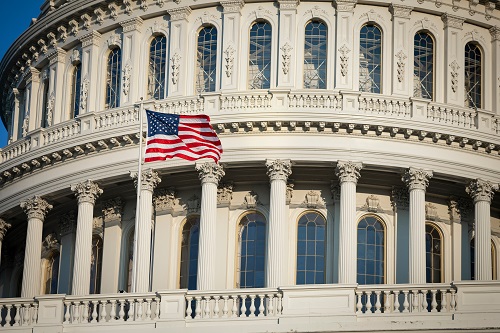New DeFi bill has “unworkable obligations”

- The Crypto Council for Innovation says the new AML bill provides no workable framework for illicit finance in DeFi.
- According to the crypto alliance, the bill’s proposals go “in the opposite direction” to what the proper approach should be.
- The CCI says legal obligations highlighted in the bill are “arbitrarily placed on persons”.
A bill introduced in the US Senate on anti-money laundering and other illicit finance activities in the decentralised finance (DeFi) space “fails to provide a workable framework”, the Crypto Council for Innovation has said.
The bill was introduced by Senators Jack Reed (Rhode Island) Mike Rounds (South Dakota), Mark Warner (Virginia) and Mitt Romney (Utah). Its proposals include the application of AML obligations to DeFi protocols and crypto ATMs.
CoinJournal reported on the new DeFi bill’s proposals earlier today.
Legal obligations are arbitrarily placed on persons
The CCI, which represents a group of industry leaders and players committed to advancing the crypto industry, has released a statement noting that the bills’ proposals, including the proposed requirements aimed at backers and facilitators of DeFi fall short of a “workable framework.”
2/ TL;DR: the proposal fails to provide a workable framework to actually address illicit finance in these sectors. https://t.co/CIbbbYuIkk
— Crypto Council for Innovation (@crypto_council) July 19, 2023
Although it notes that illicit finance is a legitimate national security concern, the council faults the bill’s framers for going “in the opposite direction” with regard to the DeFi sector.
“Illicit finance is a legitimate national security concern, and while its volume is tiny in crypto compared to TradFi, leveraging the transparency & programmability inherent in blockchain systems to derive appropriate compliance measures unique to crypto is a good idea. Unfortunately, this bill goes the opposite direction. It places legal obligations arbitrarily on persons who have no actual way to influence protocols once they are deployed, and completely fails to account for the unique attributes of blockchain-backed systems,” the Council said.
One of the issues the CCI points out from the bill is the obligation put on supposed “Digital Asset Protocol Backers.” Per the bill, this would be any person holding more than $25 million worth of a DeFi protocol’s governance token or has invested $25 million or more into the protocol’s development.
It also places obligations on so-called “Digital Asset Transaction Facilitators”, who would be any person deemed to have control over the protocol or offers access to an application that facilitates transactions on the said crypto protocol.
The Council says these proposals are not only “weird”, but advance vagueness with regard to the definition of “facilitators.” More than that, the group says the bill contains “unworkable obligations” and offers “no actual guidance.”
“The proposal offers no actual guidance on technical ways for decentralised protocols to comply with BSA reporting requirements. It is not feasible to collect personal identification information from such protocols, and the bill neither tackles this technical complexity nor provides solutions on how to address this limitation.” the Crypto Council noted.
As part of its input on the issue of DeFi regulation, the CCI says it’s collaborating with industry experts, regulators both in the US and from elsewhere to draft a framework for the appropriate regulation of the sector.
“We are consulting with industry experts and regulators in the U.S. and other leading jurisdictions to develop a technologically sound approach to mitigating illicit finance in DeFi,” the statement reads in part.
While its strong-worded statement highlighted what’s not right with the bill, the CCI acknowledges that it is still in the early stages and that its authors are open to dialogue on best way forward. The expectation is that the bill will see “plenty of edits” going forward.
22/ CCI will continue to work tirelessly to ensure policymakers have accurate info about the operations of DeFi protocols and crypto ATMs. It is critical that regulation strike the careful balance between establishing safeguards and fostering innovation in the U.S.
— Crypto Council for Innovation (@crypto_council) July 19, 2023



